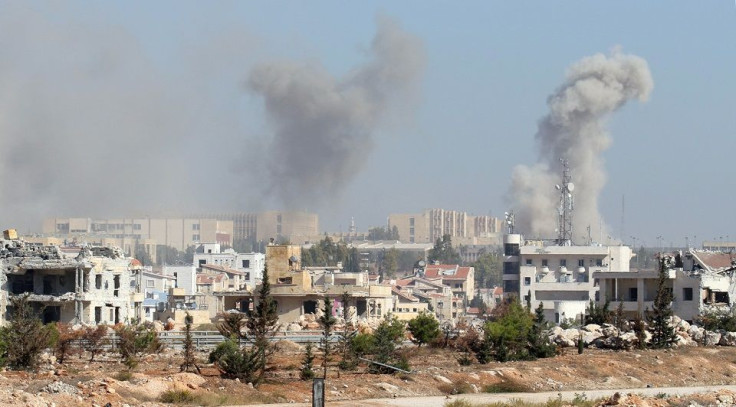Russia to launch major attack in Aleppo; Britain’s defence secretary says UK is ready for war

Western intelligence warn that Russian President Vladimir Putin would launch a full-scale military assault on Aleppo as early as this week. He earlier extended a ceasefire until Friday evening to give the rebels and civilians a chance to leave the war-torn Syrian city, but the rebels have rejected the offer.
Putin would take advantage of the political hiatus in Washington with the presidential election on Tuesday, Nov 8, and its aftermath to secure a decisive victory in the rebel-held city by mid-January. The aim of the attack is to help Russian ally, Syrian President Bashar al-Assad, retake control of Aleppo and keep a tighter rein on the Middle Eastern country, The Australian reports.
The intelligence assessment says Moscow would use its only aircraft carrier, on its way to a strike position, to enhance Russian firepower over the city. However, air and ground attacks would be risky for over 250,000 residents who refuse to leave for fear of being ambushed in the six government-set corridors.
If the attack would happen, it would be a repeat of Grozny, the Chechen capital attacked by Russia in 1999 and 2000, predicts Michel Clarke, ex-director-general of the Royal United Services Institute, a think tank based in London.
Despite the aircraft on board the Admiral Kuznetsov accounting for less than 25 percent of the war vessel’s 50,000 tonne full capacity and its pilots relatively untested in live-strike missions from the sea, it still is an important reinforcement for Russia. Besides the war ship, Russia has deployed 32 jets from a nearby airbase and established an air defence shield which could shoot down enemy planes within a 400-kilometre radius.
Meanwhile, British Defence Secretary Sir Michael Fallon says UK forces are ready for a collision course with Russia in 2018 or 2019. He deployed 800 British soldiers to Estonia to scare Moscow amid fears that Russia would attempt to grab the Baltic state, Dailystar reports.
To prepare for the possibility of a global war, Estonians are participating in weekend drills made up of 25,400 volunteers who comprise the domestic Defense League. Estonia gained its independence for the Soviet Union in 1991. Estonians are also learning how to make improvised explosive devices and the government is supplying citizens with arms for self-defense, Inquisitr reports.





















